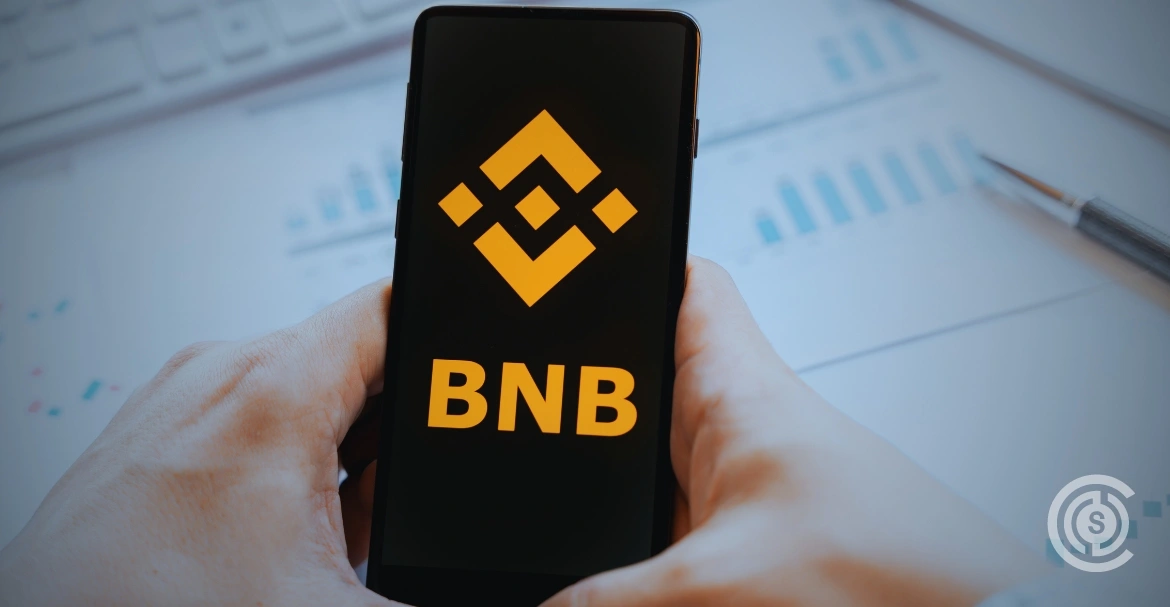BNB Chain Tops Fees with $7.88M Amid Low Gas Costs

Key Highlights:
- BNB Chain tops in network fees and application revenue.
- Gas fees on the blockchain have been reduced to 0.05 Gwei.
- The network hits a record 5 trillion gas usage in a single day.
BNB Chain has come up as the top-performing blockchain network in the past 24 hours, holding a dominant lead in both fee and application revenue. According to the data from CoinMarketCap, the network has managed to generate $7.88 million in fees and $6.65 million in application revenue. With this data, the blockchain surpasses Solana, Ethereum and Tron in daily economic activity.
👀 @BNBCHAIN Leads In 24h Fees and App Revenue pic.twitter.com/tlQAKQnRRm
— CoinMarketCap (@CoinMarketCap) October 10, 2025
This performance has come at a time when the network has dropped the gas fees. This move has increased its competitiveness and user appeal.
BNB Chain Extends Lead in Network Activity
As mentioned above BNB Chain collected $7.88 million in total fees, which is a new record for the network. This shows a higher activity in DeFi, gaming and Web3 apps. Application revenue of $6.65 million, earned by decentralized apps (DApps) on the network, rose sharply. Lower gas fees made transactions cheaper, encouraging more users and increasing overall network usage.
Just for comparison, Solana ranked second with $4.37 million in application revenue, which was followed by Ethereum with $2.52 million, and TRON with $1.49 million in fee revenue. These figures indicate that there is a shift in blockchain performance, where BNB Chain is solidifying its position as one of the most commercially used ecosystems in the Web3 space.
Adoption of New 0.05 Gwei Gas Standard Across Network
In a recent announcement on social media platform X (formerly known as Twitter), it was made public that the network has finalized transition to 0.05 Gwei gas fee standard, which has been fully integrated across major ecosystem participants. Key partners like Binance Wallet, Trust Wallet, and Aster DEX have adopted a new setting as the default transaction fee, which indicates a broad industry support for the initiative.
BNB Smart Chain’s new standard gas fee of 0.05 Gwei is now fully adopted across the network!
Major ecosystem partners including @BinanceWallet, @TrustWallet, @Aster_DEX and more, have switched to 0.05 Gwei as the default gas fee.
Spend less on gas, do more on BSC 🤩 pic.twitter.com/k9j7jYwr0n
— BNB Chain (@BNBCHAIN) October 9, 2025
The upgrade is designed in such a way that affordability will increase and the network will become more scalable while making sure that the validator profitability is maintained. By reducing the price of cost per transaction, BNB Chain is aiming to keep its execution environment attractive to high-volume developers and microtransaction-heavy applications.
The shift to 0.05 Gwei indicates that the blockchain network is making an effort to make the network more efficient while staying secure, and help move towards easier cross-chain use and wider Web3 adoption.
Rising Developer and User Engagement
This drop in gas fees has increased activity on BNB Chain as lower costs encourage more transactions from both regular users and the developers as well. Network data indicates that there has been more smart contract interaction and new wallet creation since the change.
Developers see this as a competitive advantage over networks like Ethereum, where fees can be high and unpredictable. By keeping the fees ultra-low and stable, BNB Chain attracts projects in DeFi and gaming. Integration with wallets like Binance Wallet and Trust Wallet also makes it easier for users to join the ecosystem.
Market Outlook and Ecosystem Growth
BNB Chain has managed to achieve great heights this year. The network has surpassed 58 million monthly active addresses. With this number it is has overtaken Solana and has reached record gas usage of 5 trillion units in a single day.
🚨 CMC News: BNB Chain Hits Record 5 Trillion Gas Usage in a Single Day.https://t.co/YsSQRG8G98
— CoinMarketCap (@CoinMarketCap) October 10, 2025
These achievements depict that there has been a great increase in user engagement and transaction volume. The BNB token also reached an all-time high recently and hit the $1300 mark.
The price of the token stands at $1,267.04 with a dip of 1.21% in the last 24 hours. Since the entire market is facing a decline, the price of the token has also taken a hit. Bitcoin is down by 0.8% and Ethereum is down by 2.1% which dragged altcoins lower. The token also managed to hit a new ATH. Profit taking has also begun, which is also the reason for the decreased price of the token. Moreover, a hacking alert was also raised by CZ earlier today, which caused security concerns to be raised amongst short-term traders.
Also Read: Japan’s First Solana Treasury Launches Amid ETF Approval Buzz


